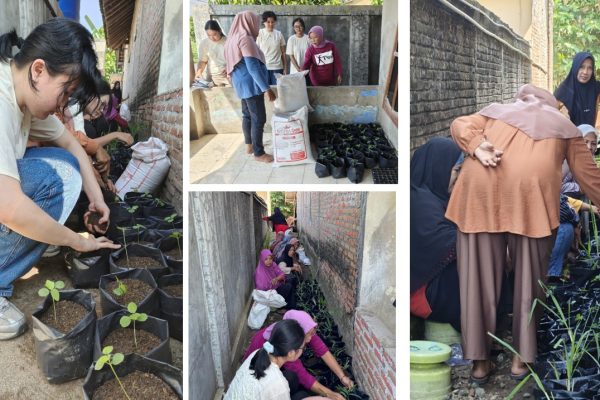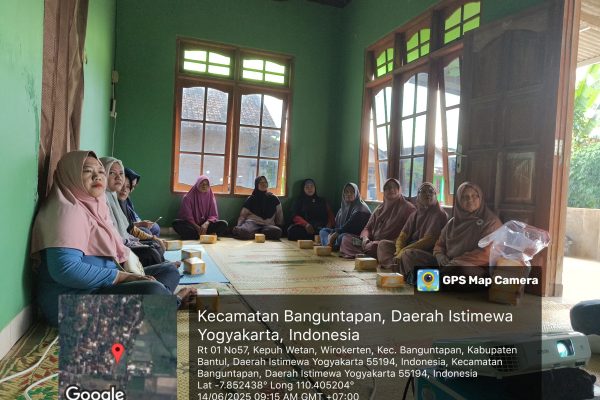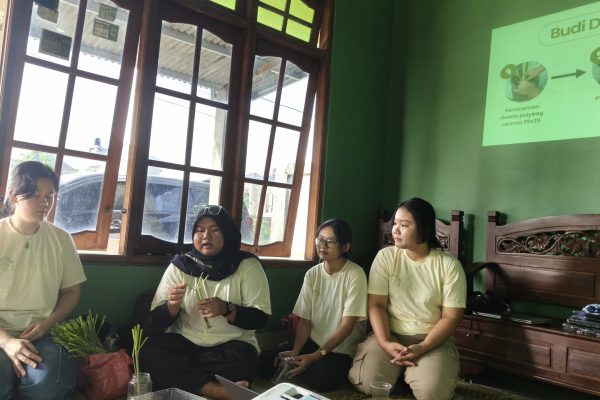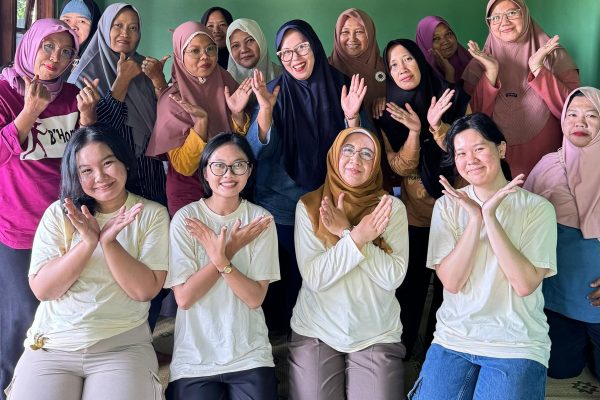Front yard utilization for the cultivation of functional plants with market value could contribute to improve entrepreneurial independence. In a series of 2025 PKM-MBKM activities with the Amanda Women Farmers Group as partners, training and mentoring of outdoor plants cultivation were carried out on Saturday, June 14, 2025 at Padukuhan Kepuh Wetan, Wirokerten Village, Kapanewon Banguntapan, Bantul Regency, Yogyakarta Special Region. The UGM PKM-MBKM team led by Prof. Dr. Diah Rachmawati, S.Si., M.Si. accompanied by students from the Faculty of Biology UGM class of 2022: Jovanka, Khansa Fauziah Rachman, Samantha Sonya Putri, and Dhea Amelia, delivered the materials and practices on how to germinate, transplant, and nurture rosella (Hibiscus sabdariffa L.), butterfly pea (Clitoria ternatea L.), ginger (Zingiber officinale Roscoe), and lemongrass (Cymbopogon citratus (DC.) Stapf).
Rosella, butterfly pea, ginger, and lemongrass are grown in several stages. In rosella and butterfly pea, good seeds are selected by soaking them in water and taking the sinking seeds. Seeds that sink are put into in a seedling tray with planting media and watered daily. After the seeds germinate for approximately 1-2 weeks and the main stem is strong enough, the plants are transferred to a 25×25 poly bag containing planting media. Watering is done every day and fertilizing every 2 weeks with NPK fertilizer dissolved in water. The process of ginger cultivation is carried out by selecting ginger rhizomes that have good quality and cleaning them from the remaining soil. Gingers are put into a container containing wet cloth covered with another wet cloth. This process is carried out until the shoots appear on rhizome (approximately 2 weeks) and continued with the planting process in a 35×35 polybag containing planting media. As for lemongrass, the initial process carried out is pruning the upper leaves and soaking lemongrass in water until they grow roots. This process lasts approximately 1 week and is followed by planting lemongrass in a 35×35 polybag with planting media. Lemongrass and ginger were watered daily and fertilized once a week with NPK dissolved in water.
The activity received a very positive response from the members of the Amanda Women Farmers Group who enthusiastically followed the entire series of events, from the material delivery to hands-on practice. This enthusiasm can be seen from the many questions asked during the discussion session, as well as the liveliness of the participants when trying to perform germination and transplanting techniques independently. In addition, this activity also became a space for interaction that strengthened the relationship between the implementation team and partner communities, creating a collaborative and mutually supportive atmosphere (SDG 17). Through a participatory and applicable approach, it is hoped that this activity will not only provide new knowledge and skills, but also be able to build community independence in utilizing front yard productively by cultivating plants with high market value to improve family food security and community welfare in a sustainable manner (SDG 8).





